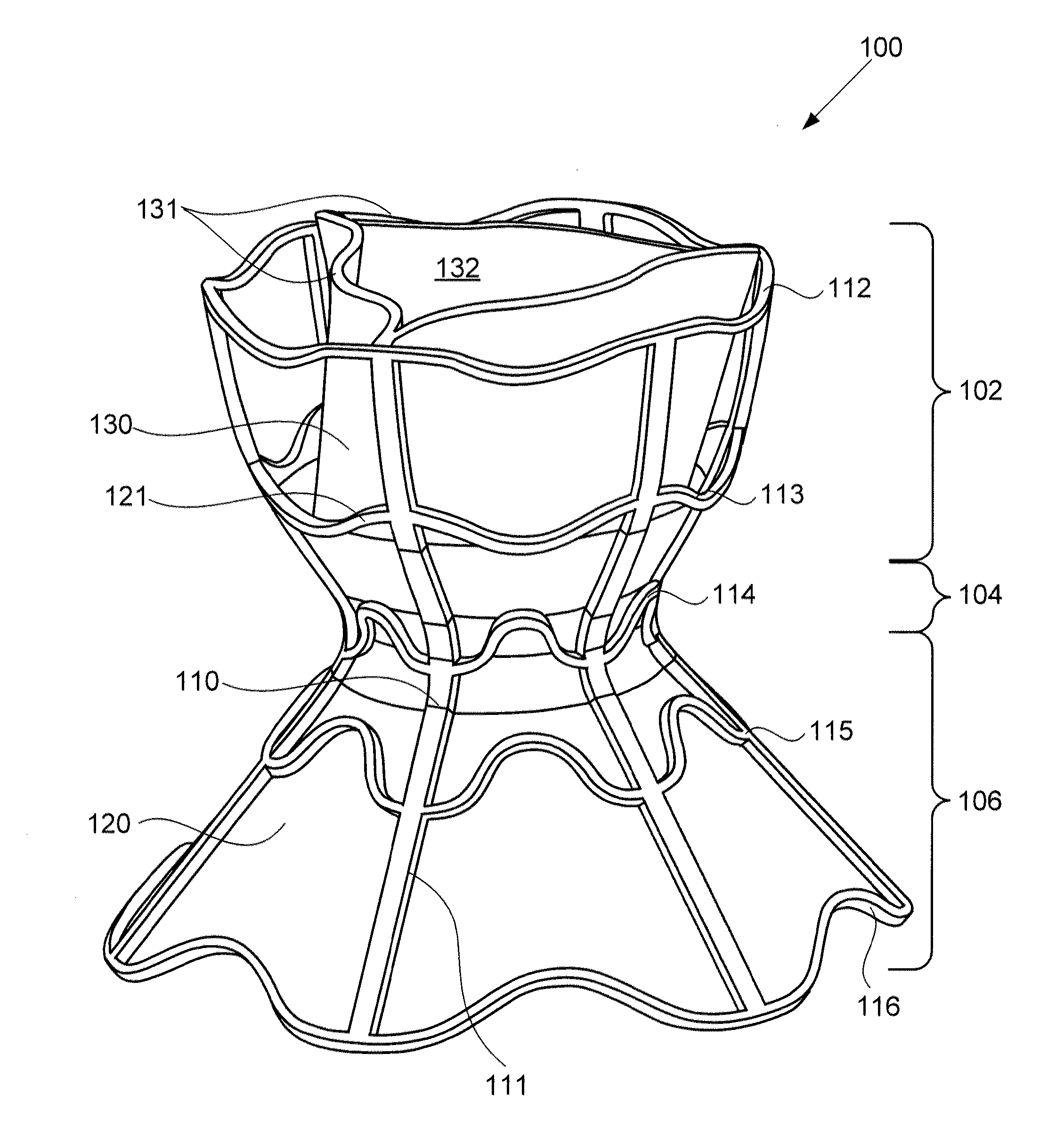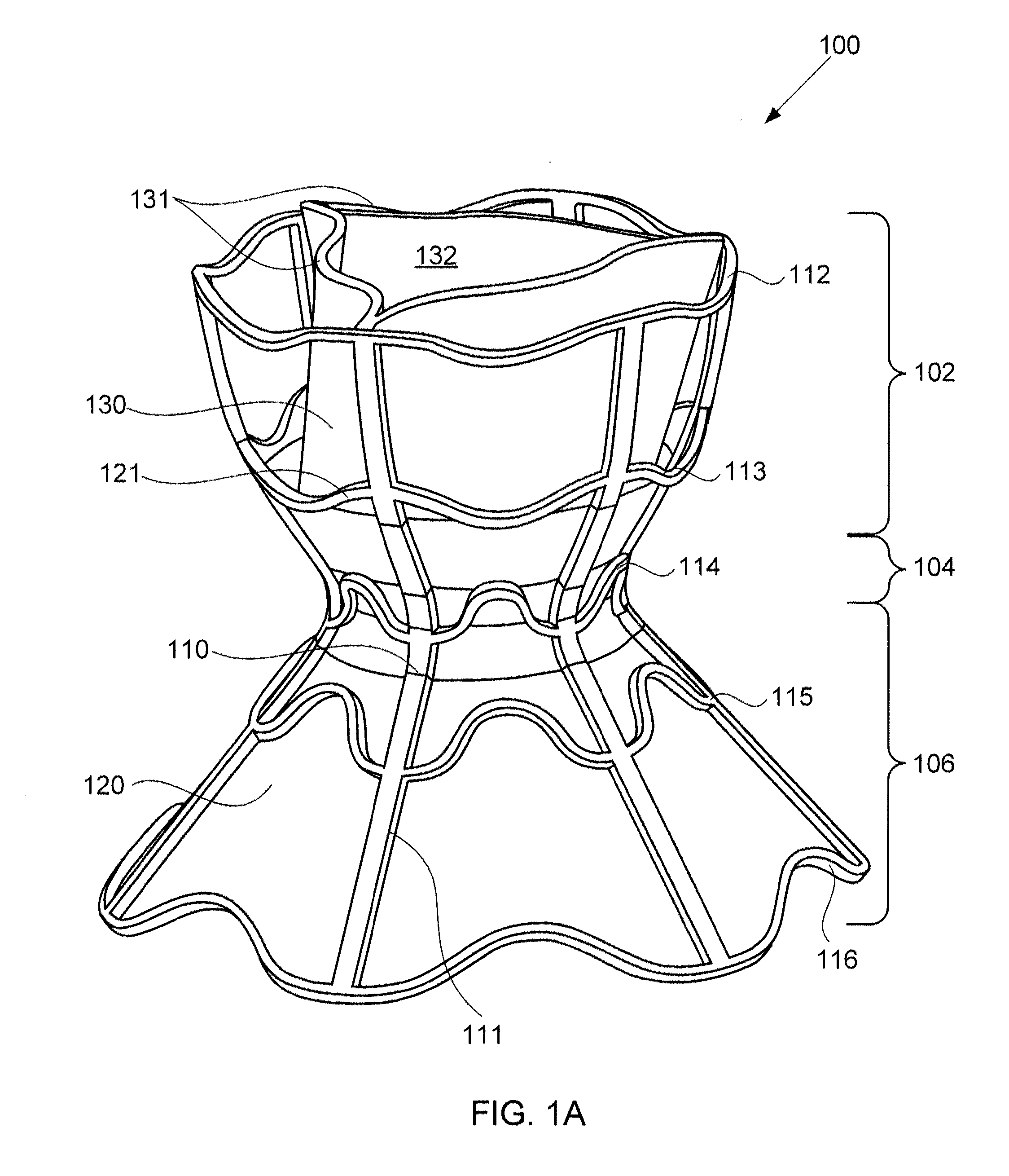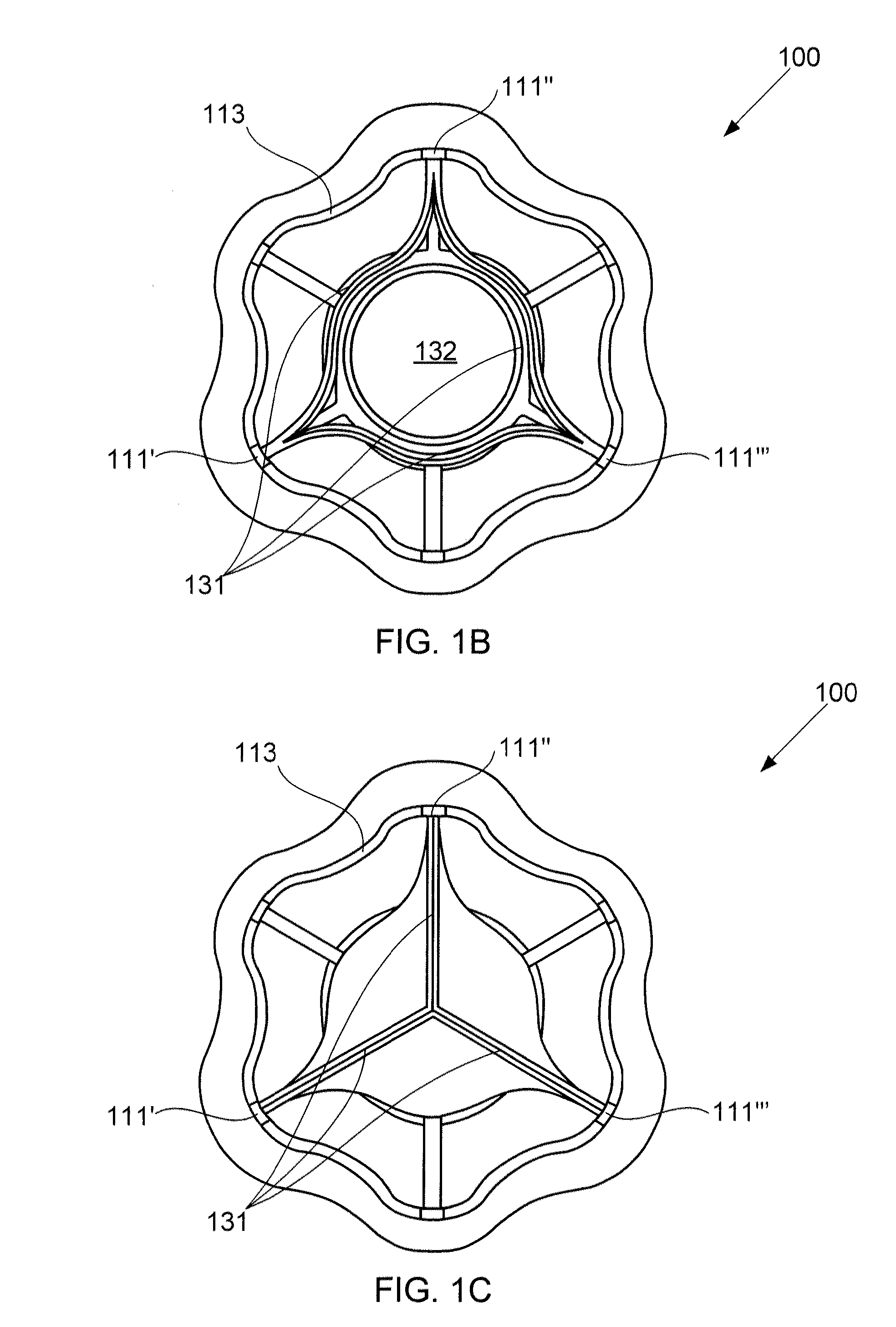Devices for reducing left atrial pressure, and methods of making and using same
a technology of left atrial pressure and devices, applied in the field of devices and methods for reducing left atrial pressure, can solve the problems of enlarging the heart chamber, enlarging the ventricle, and insufficient cardiac output to meet the needs of the body, so as to reduce the left atrial pressure, relieve pulmonary congestion, and increase cardiac outpu
- Summary
- Abstract
- Description
- Claims
- Application Information
AI Technical Summary
Benefits of technology
Problems solved by technology
Method used
Image
Examples
example
[0091]An exemplary device 800 such as described above with respect to FIGS. 8A-8C was implanted into four sheep with induced chronic heart failure (V1-V4), while four sheep with induced chronic heart failure did not receive the device, and were used as a control (C1-C4). An additional control animal was subjected to only a partial heart failure protocol, and did not receive the device (S1).
[0092]Chronic heart failure was induced in animals C1-C4 and V1-V4, who were less than 1 year of age and weighed between 70 and 120 pounds, by first anesthetizing the animals via a venous catheter positioned in a peripheral vessel, i.e., the ear. The animals were given an opiate or synthetic opiate (e.g., morphine or butorphanol) intravenously at 0.25 to 0.5 mg / kg, as well as telazol at 0.3 mg / kg, through the venous catheter, and anesthetized by intravenous etomidate. Anesthesia was maintained with 1.5% isoflurane delivered in 100% O2, via a tracheal tube. The animals were placed on a fluoroscope ...
PUM
| Property | Measurement | Unit |
|---|---|---|
| length | aaaaa | aaaaa |
| length | aaaaa | aaaaa |
| height | aaaaa | aaaaa |
Abstract
Description
Claims
Application Information
 Login to View More
Login to View More - R&D
- Intellectual Property
- Life Sciences
- Materials
- Tech Scout
- Unparalleled Data Quality
- Higher Quality Content
- 60% Fewer Hallucinations
Browse by: Latest US Patents, China's latest patents, Technical Efficacy Thesaurus, Application Domain, Technology Topic, Popular Technical Reports.
© 2025 PatSnap. All rights reserved.Legal|Privacy policy|Modern Slavery Act Transparency Statement|Sitemap|About US| Contact US: help@patsnap.com



